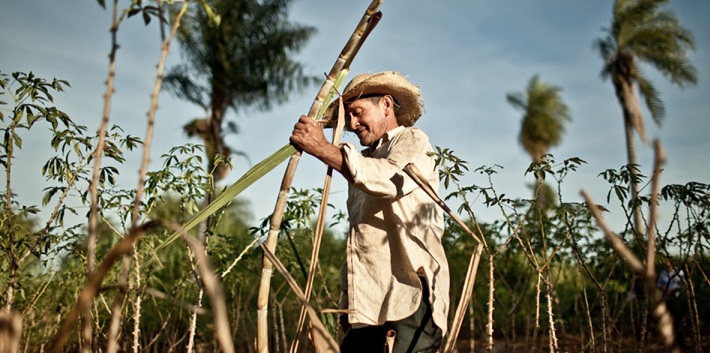
EspañolOn October 7, Colombia’s Superintendency of Industry and Commerce placed a US$100 million fine on the country’s largest sugar producers for allegedly colluding as an oligopoly. Their intention, the superintendency states, was to stop sugar imports from entering Colombia.
Leading politicians from both the traditional left and right rejected the superintendency’s measure. Yet again, it is evident that statism runs across the Colombian political spectrum and that, inevitably, statism leads to crony capitalism.
In truth, it’s hard to oppose the fine on the sugar racketeers, but this applies only at a superficial level. I don’t recall the superintendency favoring the free market and the consumer ever before. This entity, in fact, has traditionally served as a means for the state to intervene in the economy and to restrict free enterprise.
The penalty on Colombian sugar producers, in fact, will probably serve as an excuse for statists to claim that a larger, stronger government is necessary in order to prevent economic elites from lining their pockets at consumers’ expense.
What the statists forget is that restrictions on free trade inevitably lead to an increase in the prices we pay for consumer goods, so that any constraint on the free market creates a direct benefit for producers in the economy’s over-regulated sectors. When this is the case, there is no real competition, and the consumer majority pays higher prices for lower quality goods.
At the same time, an economic elite sheltered by the government amasses profits that are not wholly earned. There is, in short, a totally inefficient allocation of domestic resources, which are naturally scarce.
The diagnosis may be clear, but not the problem’s underlying cause. In theory, large sugar producers could operate in the market perfectly well without resorting to fraudulent practices. The key question is: how could these companies connive in order to block sugar imports into Colombia?
“It’s a matter of accumulated power,” someone might reply, and he would be correct. But the real reason why large economic interests amass such power in the first place is that they intentionally co-opt the political sphere.
That is to say, Colombian sugar producers spend large amounts of money in order to influence the government’s decisions. This is why they can thwart free trade by obstructing others’ liberty to import sugar.
Colombian sugar impresarios, in other words, end up involved in practices that, in theory, have nothing to do with their main productive activity, i.e. producing sugar goods. They do this because they perceive that the Colombian state can take measures that benefit them directly without the need of improving the quality of their products or responding to consumers’ needs. They are neither innovators nor entrepreneurs; they simply turn to the state as a shortcut to profit.
So, in truth, the superintendency’s decision unveils a general rule: state intervention in the economy almost always creates the need for a greater degree of intervention in the future. Since the Colombian state can obstruct imports by means of regulations, producers end up with incentives to somehow persuade bureaucrats to increasingly regulate the market so as to protect their particular interests.
This type of mercantilist, crony capitalism then leads to calls for even more regulation in the hope of restraining the private sector’s harmful instincts. Any way you look at it, the cycle is vicious.
This general rule must then lead to the conclusion that severely limiting state intervention in the economy — and, by extension, in our lives — is the best way to guarantee a healthy competition in a free market in which the consumer — and not the influence-peddling magnate — is king.
[adrotate group=”8″]
In Colombia, no state-imposed fine or penalty on a particular industry will put a stop to future abuses. One must look beyond the superficial media analysis that arises when a scandal breaks out in order to find the root of the problem. We have to recognize that, when a few gain the ability to oppress others and take advantage of them, it is usually by means of the Colombian state itself. It is therefore necessary to empower the citizenry by wresting power from the state itself.
Nota bene:
The issues which I raise in this article can possibly enter the Colombian political debate. After a flawless campaign by candidate Daniel Raisbeck, who ran for mayor of Bogotá, the Libertarian Movement obtained more than 20,500 votes.
This is an unquestionable victory for a campaign carried out with few funds and with no political machinery. So there arises the hope that, some day, the Colombian state will do what it ought to do: preserve our liberties rather than limit them.
 Versión Español
Versión Español












